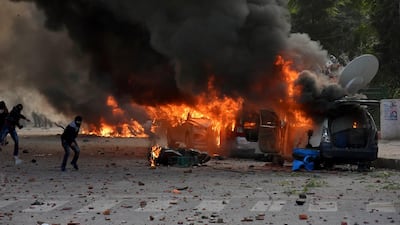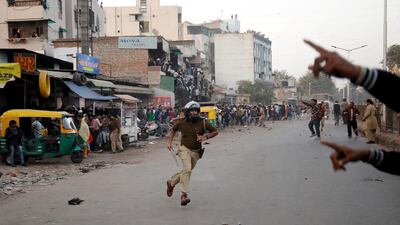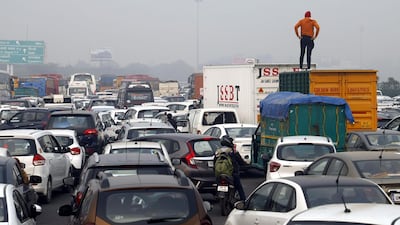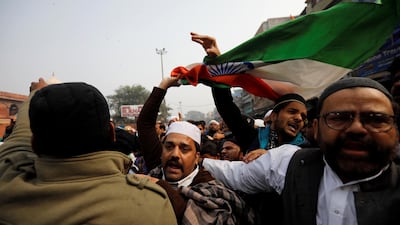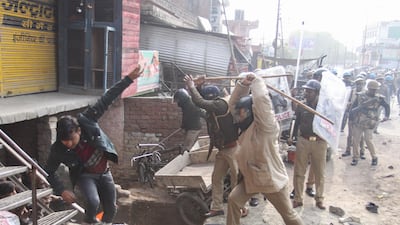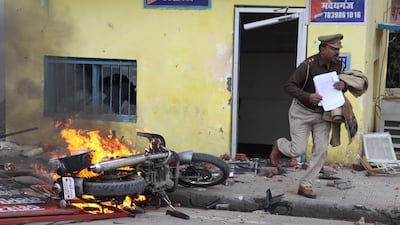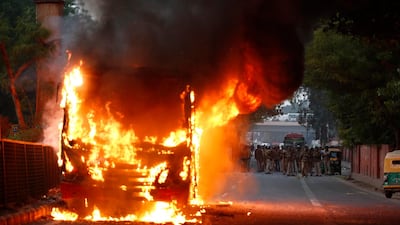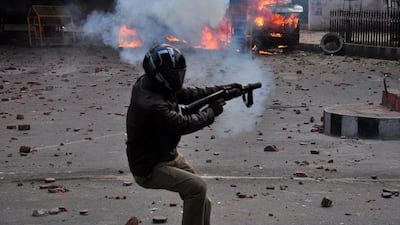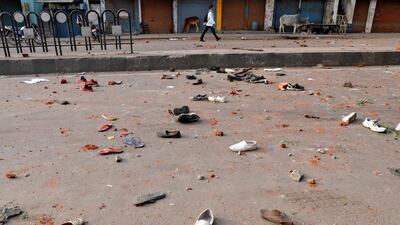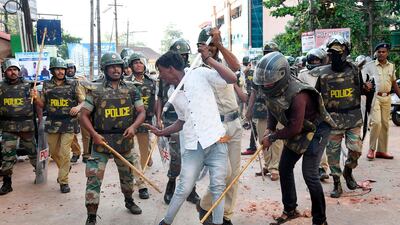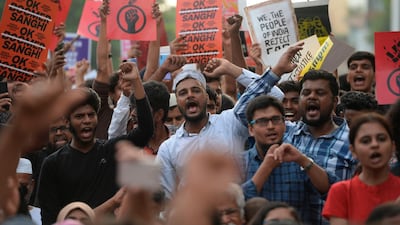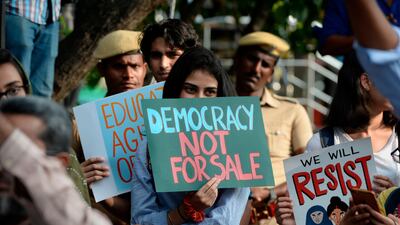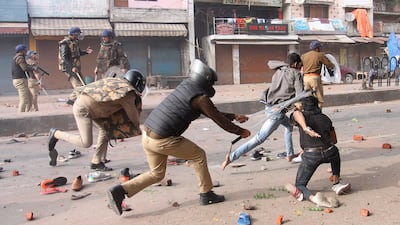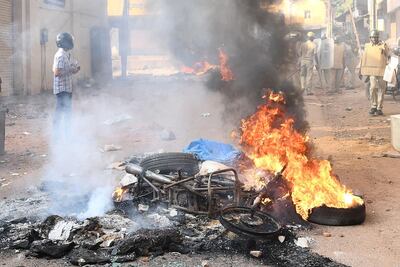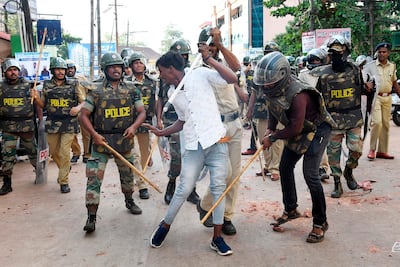At least three protesters were killed in clashes across several Indian cities after thousands defied a government ban on protests against a new citizenship law on Thursday.
Several organisations called for people to join the protests against the law, which allows persecuted refugees from Pakistan, Afghanistan and Bangladesh, of all religions except Islam, to take up Indian nationality.
Abdul Jalil, 49, and Samshir Kudroli, 23, were shot dead in Mangalore, said Qadir Shah, a spokesman for the deputy commissioner of the southern city.
Police opened fire in Mangalore and the city of Lucknow, in India’s north, after thousands of protesters took to the streets.
Four demonstrators were wounded in Mangalore, where authorities imposed a round-the-clock curfew after clashes between police and protesters. They were being treated in hospital, officials said.
A police official in Lucknow said a protester was killed two wounded in day-long clashes in the city, where similar protests erupted on Wednesday, prompting authorities to impose a ban on gatherings across the northern Uttar Pradesh state.
The official did not say how the protester died.
In Uttar Pradesh’s Sambhal district, protesters torched four buses and threw stones at policemen during clashes that have spread to other parts of the country.
Police used tear gas and charged at protesters with batons to disperse them.
Thousands of protesters were detained across many Indian cities after the government ban on public gatherings and a brief mobile communications ban in the national capital.
Authorities in West Bengal, Bihar, Gujarat, Tamil Nadu and Telangana issued orders to stop the protests.
Hindu nationalist Prime Minister Narendra Modi's government said the Citizenship Amendment Act would benefit millions of members of "persecuted" religious minorities fleeing the three countries.
But the move has angered many Indians who say the law goes against India's secular constitution and could be used against its 200 million Muslim residents under a proposed move to create a nationwide citizens’ registry.
In New Delhi, police put up barricades and imposed orders to stop protesters gathering at the Red Fort monument.
Hundreds were bundled on to buses and taken to police stations across the city but several reached the central Jantar Mantar venue.
Some metro stations were closed in the capital to stop people joining the protests while police blocked a key motorway connecting Delhi with neighbouring Gurgaon city.
Almost 20 flights were cancelled after crew became stuck in traffic jam on a national motorway, and another 16 were delayed.
“This law is against India and its people and the world. We cannot accept dictators in a democracy,” said Rajat, a protester in New Delhi.
Another, Vikram Jha, said: "For six years, people kept silent thinking the government is working for us but when you bring in divisive laws like CAA, it's time to shake them up. Enough is enough."
In Bangalore city, more than 100 protesters including prominent historian Ramachandra Guha were taken into preventive custody for defying the ban.
Bollywood actors joined the protesters in Mumbai, where thousands of have taken to streets in the past week.
In Ahmedabad, the biggest city in Mr Modi's home state of Gujarat, police charged at protesters.
Mr Modi has said the act would have no effect on the citizenship of any Indian, regardless of their religion.
Protests have continued in north-east states of Assam and Tripura, where demonstrators are angered by the law that they say will allow tens of thousands of Bengali-speaking Hindu immigrants to settle in their homelands.
Last week, six people were killed in Guwahati, Assam’s largest city, over fears that immigrants, mostly from Bangladesh, would overrun their land, culture and language.
